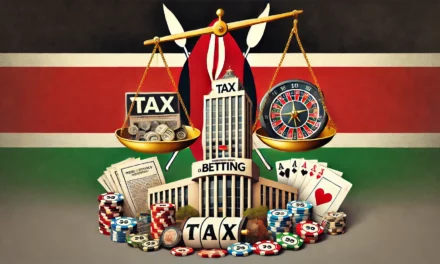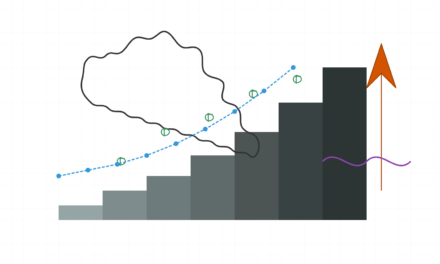In the glittering world of iGaming, where live dealer tables and RNG slots churn out profits like a well-oiled slot machine, Evolution AB has long played the role of the house—until the house started to wobble. A 10% stock drop in the past month, wiping out 13 billion SEK in market value, isn’t just a blip on the radar. It’s the latest chapter in a saga that’s been unfolding since 2021, where regulatory scrutiny and whispers of black-market dalliances keep dragging Evolution’s share price into the muck. For iGaming leaders, this is less a cautionary tale than a neon-lit warning sign: compliance isn’t just a buzzword; it’s the difference between a jackpot and a bust.
The Regulatory Noose Tightens
Evolution AB, the titan of live dealer gaming, found itself under the UK Gambling Commission’s (UKGC) microscope yet again in December 2024. The charge? Its games were accessible on unlicensed platforms in the UK, a market that accounts for a modest 3% of its revenue but carries outsized reputational weight. The UKGC’s review sent shares plummeting 12%, the steepest drop since late 2021. Evolution’s response—IP-blocking and a public pledge to play nice—sounds like a well-rehearsed script. CEO Martin Carlesund’s assurances of “forceful action” to restrict unauthorized access are as polished as a croupier’s smile, but they don’t erase the fact that unlicensed operators keep finding Evolution’s games like moths to a flame.
Black Markets and Banned Jurisdictions: The Elephant in the Room
If the UKGC’s probe was the only issue, perhaps Evolution could shrug it off. But the plot thickens with allegations that its games have surfaced in prohibited markets like Iran, Sudan, and China—places where gambling is either heavily restricted or outright banned. A Bloomberg report citing court filings revealed executives discussing these markets in secretly recorded conversations, a revelation that tanked the stock by 11% in a single day. Evolution’s defense? A dismissive wave, calling the claims “false and defamatory.” Yet, the pattern persists: from Australia’s 2022 crackdown on unlicensed sites hosting Evolution’s games to a $25,000 fine in Pennsylvania for surveillance lapses, the company’s compliance record reads like a rap sheet.
Financial Gymnastics: Share Buybacks and Sinking Sentiment
Throwing Money at the Problem
In a move that screams desperation, Evolution spent 185 million SEK on share buybacks between August 25-29, 2025, only to watch its stock price dip below 800 SEK days later. If the goal was to prop up investor confidence, it was like betting on a losing hand. The market isn’t buying the financial sleight of hand. Investors know that no amount of stock repurchasing can paper over the cracks of regulatory exposure. The Q1 2025 earnings report didn’t help, revealing a 5.4% profit dip to €254.7 million as Evolution exited unregulated European markets. Carlesund admitted the pivot hurt profitability, but he doubled down on a 66-68% EBITDA margin forecast, as if optimism alone could ward off the regulatory wolves.
Investor Trust: A House of Cards
The irony is delicious: a company built on the predictability of casino odds can’t seem to predict its own regulatory risks. A class-action lawsuit filed by Federman & Sherwood alleges that Evolution misled investors about its compliance and growth prospects between 2019 and 2023. While a U.S. federal court dismissed a similar shareholder suit on jurisdictional grounds, the allegations—that Evolution’s products are entangled with prohibited markets—linger like cigarette smoke in a poker room. Investors are jittery, and for good reason. A single headline about a license suspension or a hefty fine could erase billions in market cap overnight
The Bigger Picture: A Flawed Business Model?
The Grey-Market Gamble
Evolution’s leadership insists it can’t control where operators distribute its games. It’s a convenient excuse, but it doesn’t hold water when the same issue crops up across dozens of jurisdictions. Check any unlicensed crypto casino, and there’s a good chance you’ll find Evolution’s live blackjack or roulette tables front and center. The company’s reliance on third-party operators, including blockchain-based platforms with lax oversight, is a double-edged sword. It fuels revenue growth—€521 million in Q1 2025 alone—but leaves Evolution vulnerable to regulatory crackdowns. The iGaming industry thrives on trust, and Evolution’s repeated brushes with black-market exposure erode it faster than a losing streak at the slots.
Strategic Missteps or Calculated Risks?
Here’s where the irony peaks: Evolution’s global dominance is both its strength and its Achilles’ heel. Its aggressive expansion into high-revenue but loosely regulated markets like Asia has fueled growth but invited scrutiny. The company’s Q1 2025 revenue from Europe dropped 1% year-on-year, partly due to its exit from grey markets. Meanwhile, its North American performance has stagnated, with delays in new studio openings adding to investor woes. Evolution’s bet on U.S. expansion and partnerships like FanDuel’s may pay off, but only if it can navigate the regulatory minefield without stepping on another landmine
A Wake-Up Call for iGaming Leaders
For iGaming executives, Evolution’s woes are a masterclass in what not to do. The industry’s future hinges on compliance, not just as a legal checkbox but as a strategic imperative. Regulators worldwide are tightening the screws, from the UK’s focus on upstream disruption to Australia’s ISP blocks. Relying on third-party operators without robust oversight is like handing the keys to a slot machine to a stranger. Evolution’s predicament underscores the need for proactive compliance frameworks—IP-based geofencing, real-time monitoring, and airtight contracts with operators. Anything less is an invitation to disaster.
The critique here isn’t just about Evolution’s missteps; it’s about an industry that’s been slow to learn. The allure of grey-market revenue is tempting, but the cost—regulatory fines, stock volatility, and reputational damage—isn’t worth the gamble. iGaming leaders must prioritize compliance over short-term gains, or risk becoming the next cautionary tale.
-
Evolution AB’s stock dropped 10% in the past month, losing 13 billion SEK in market value, driven by regulatory scrutiny over unlicensed operator ties, like in the
US with Stake for example.
-
The UKGC is reviewing Evolution’s license due to games appearing on unlicensed UK platforms, with potential outcomes ranging from fines to license revocation
-
Allegations of games in prohibited markets like Iran and Sudan have fueled investor distrust, with a class-action lawsuit claiming misleading compliance statements
-
Share buybacks of 185 million SEK failed to halt the stock slide, and Q1 2025 profits fell 5.4% after exiting unregulated markets
-
iGaming leaders must prioritize robust compliance frameworks to avoid similar regulatory and reputational risks.
Disclaimer: This article and its accompanying images may have been enhanced using AI tools to ensure smoother content delivery and visual appeal.





